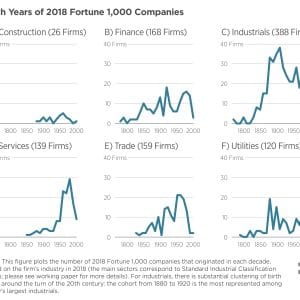
Understanding how monetary policy: A set of actions taken by a central bank or government to influence the amount of money in the economy and the cost of borrowing impacts financial markets is crucial for understanding how it affects the economy more broadly. In 2005, economists Ben Bernanke and Kenneth Kuttner released a seminal study showing that stock prices react to Federal Reserve announcements primarily because of changes in the equity premium: The additional return that investors expect to earn from stocks over less risky assets, like government bonds, to compensate for higher risk , suggesting that monetary policy influences investor sentiment and risk-taking behavior by altering the extra return investors expect from holding stocks compared to safer investments.
In this paper, the authors revisit that conclusion using an improved methodology that relies on data that was not available at the time of Bernanke and Kuttner’s study. They use data on dividend futures prices: The prices of contracts that allow investors to bet on or hedge against the future dividend payments of a company or stock index to estimate how stock prices react when bond yields: The returns an investor earns from holding a bond, typically expressed as a percentage of the bond’s price change unexpectedly due to monetary policy surprises. This allows them to isolate the impact of changes in bond yields from the effect of shifts in the equity risk premium. They find the following:
- When the Federal Reserve announces a surprise policy change, most of the resulting stock market movement can be explained by changes in bond yields, not by shifts in the equity premium.
- The stock market’s tendency to perform differently depending on whether the week is an “odd” or “even” week in the Federal Reserve’s meeting cycle is also explained by changes in bond yields, not by shifts in the equity premium.
This research overturns the conventional wisdom that the stock market response to monetary policy surprises is mostly attributable to the effect of monetary policy on the equity premium. Instead, this new evidence suggests that the Federal Reserve’s primary influence on the stock market comes through changes in bond yields, not shifts in investor sentiment or risk-taking. As a result, policymakers should focus on managing interest rates to impact the economy, with less concern about direct effects on equity risk premiums.












